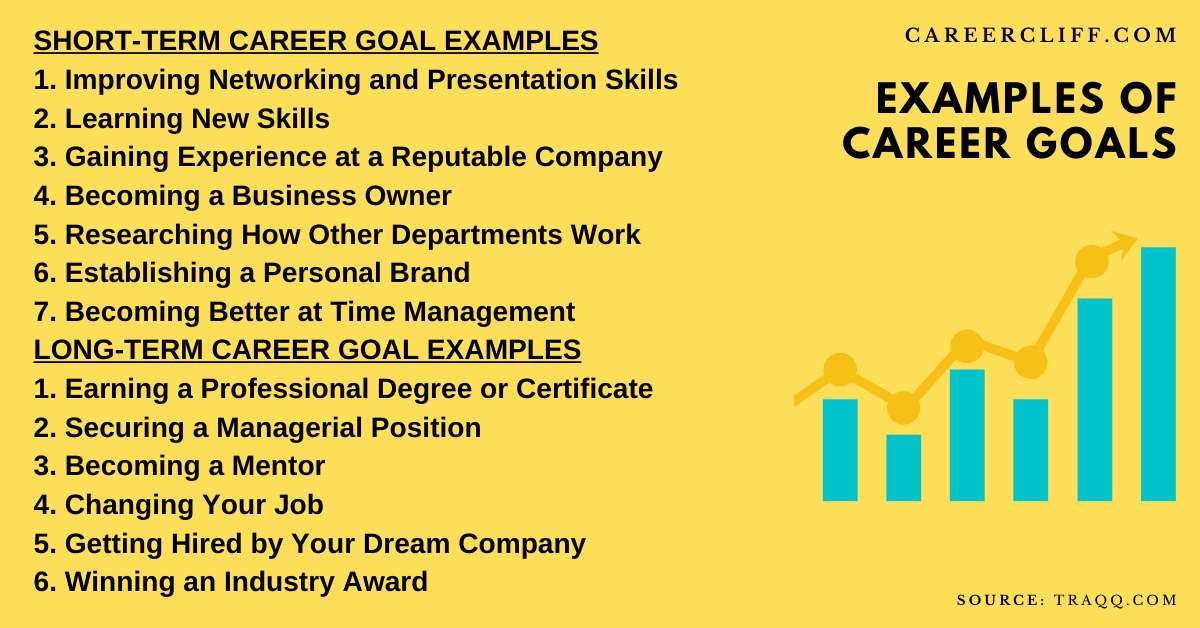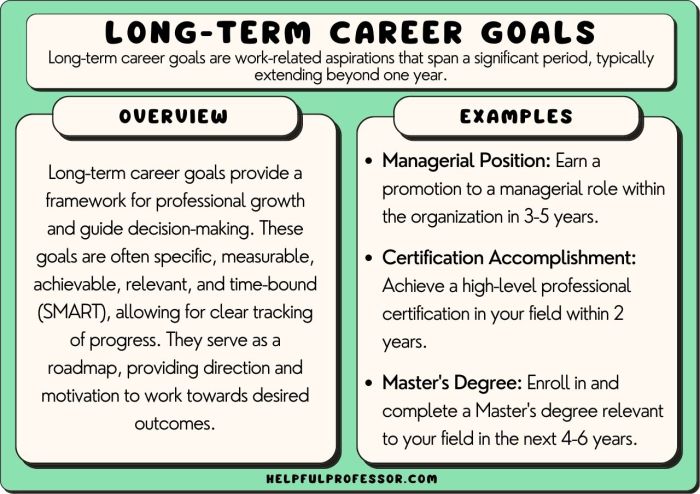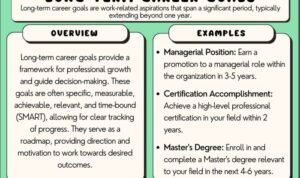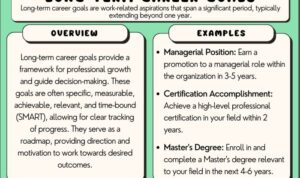Career Development Goals are like the ultimate roadmap to your dreams, paving the way for professional triumph. Picture this: you, strutting down the halls of success, armed with clear goals and a killer attitude. Let’s dive in and uncover the secrets to unlocking your full potential!
Whether you’re aiming for that corner office or looking to level up your skills, setting career development goals is the key to turning your aspirations into reality. Get ready to unleash your inner boss and conquer the world of professional growth!
Importance of Career Development Goals

Setting career development goals is crucial for professional growth as it provides a clear direction for individuals to focus on their skills, knowledge, and experiences. By outlining specific goals, individuals can track their progress, stay motivated, and work towards achieving their desired career outcomes.
Advancement Opportunities
- Having clear career development goals can lead to various advancement opportunities within an organization. For example, if an individual sets a goal to acquire a new certification or skill, they may become eligible for a promotion or a higher-paying position.
- Goals related to taking on new projects, leading teams, or expanding one’s network can also open doors for career progression and growth.
Impact on Job Satisfaction and Motivation
- Well-defined career development goals contribute to job satisfaction by providing a sense of purpose and direction in one’s professional life. When individuals have a clear vision of where they are heading and what they want to achieve, they are more likely to feel fulfilled in their roles.
- Setting and achieving goals can boost motivation levels as individuals experience a sense of accomplishment and progress. This, in turn, can lead to increased productivity and overall job satisfaction.
Types of Career Development Goals

When it comes to setting career development goals, there are various categories to consider, each with its own unique focus and importance.
Skills Improvement
One common category of career development goals is focused on improving specific skills relevant to your field. This can include technical skills, soft skills, or even leadership abilities.
Promotions
Another type of career development goal revolves around seeking promotions within your current organization or aiming for advancement opportunities in a new company. These goals often involve demonstrating your capabilities and value to move up the career ladder.
Education
Career development goals related to education focus on acquiring new qualifications, certifications, or degrees to enhance your knowledge and expertise in a particular area. This can open up new career paths or lead to higher-paying positions.
Short-term vs. Long-term Goals
Short-term career goals typically have a timeline of one to three years and are more immediate in nature, such as completing a training program or gaining a specific certification. On the other hand, long-term career goals span over five years or more and often involve broader aspirations like reaching a certain executive level or starting your own business.
The Significance of SMART Goals
Setting SMART goals – Specific, Measurable, Achievable, Relevant, and Time-bound – is crucial for effective career planning. These goals provide clarity, focus, and motivation, helping you track your progress and stay on course towards achieving your desired outcomes.
Strategies for Setting Career Development Goals
Setting career development goals is crucial for achieving success in your professional life. Here are some strategies to help you align your personal values and interests with your career goals, create an action plan, and track your progress effectively.
Aligning Personal Values and Interests with Career Goals
Before setting career development goals, take some time to reflect on your personal values and interests. Consider what truly motivates you and brings you fulfillment. Aligning your career goals with these values and interests will help you stay engaged and committed in the long run.
Creating an Action Plan to Achieve Career Objectives
Once you have identified your values and interests, it’s time to create a clear action plan to achieve your career objectives. Break down your goals into smaller, manageable tasks with specific timelines. Set milestones to track your progress and hold yourself accountable.
Tracking Progress and Adjusting Goals Accordingly
Regularly monitor your progress towards your career development goals. Keep a journal, use a progress tracking tool, or seek feedback from mentors or colleagues. If you encounter obstacles or find that your goals no longer align with your values, don’t be afraid to adjust them. Flexibility is key to staying on the right path towards career success.
Overcoming Challenges in Career Development: Career Development Goals
When striving to achieve career goals, individuals often encounter various obstacles that can hinder their progress. It is essential to address these challenges head-on and find effective solutions to stay motivated and focused on the journey towards success.
Balancing Work and Personal Life
One common challenge in career development is finding a balance between work responsibilities and personal life. Many individuals struggle to juggle their professional commitments with personal obligations, leading to stress and burnout.
- Set boundaries: Establish clear boundaries between work and personal time to ensure that you prioritize self-care and maintain a healthy work-life balance.
- Delegate tasks: Delegate tasks at work and home to lighten your workload and free up time for activities that bring you joy and relaxation.
- Practice self-care: Make time for self-care activities such as exercise, meditation, or hobbies to recharge and rejuvenate your mind and body.
Dealing with Rejection and Failure
Facing rejection and failure is an inevitable part of pursuing career goals. It can be disheartening and demotivating, but it is crucial to learn from setbacks and persevere in the face of adversity.
- Develop resilience: Cultivate resilience by viewing rejection as an opportunity for growth and learning. Use feedback to improve and enhance your skills and capabilities.
- Stay positive: Maintain a positive mindset and focus on your strengths and accomplishments. Celebrate small victories along the way to boost your confidence and motivation.
- Seek support: Lean on friends, family, mentors, or career counselors for guidance and encouragement during challenging times. Surround yourself with a strong support system to help you stay motivated and resilient.
Navigating Career Transitions, Career Development Goals
Transitioning to a new career path or advancing in your current field can be daunting and overwhelming. It is essential to develop a clear plan and strategy to navigate career transitions successfully.
- Set clear goals: Define your career objectives and create a roadmap outlining the steps needed to achieve them. Break down larger goals into smaller, manageable tasks to track your progress effectively.
- Acquire new skills: Invest in continuous learning and skill development to stay relevant and competitive in your industry. Attend workshops, courses, or seminars to broaden your knowledge and expertise.
- Network strategically: Build a strong professional network by connecting with industry peers, attending networking events, and leveraging social media platforms. Networking can open up new opportunities and help you advance in your career.












